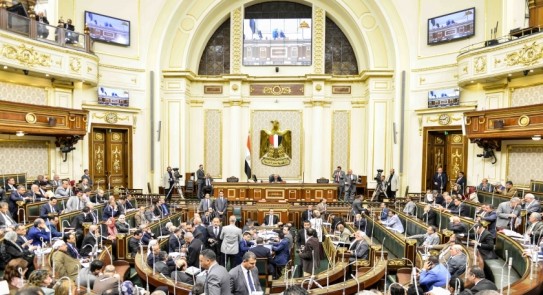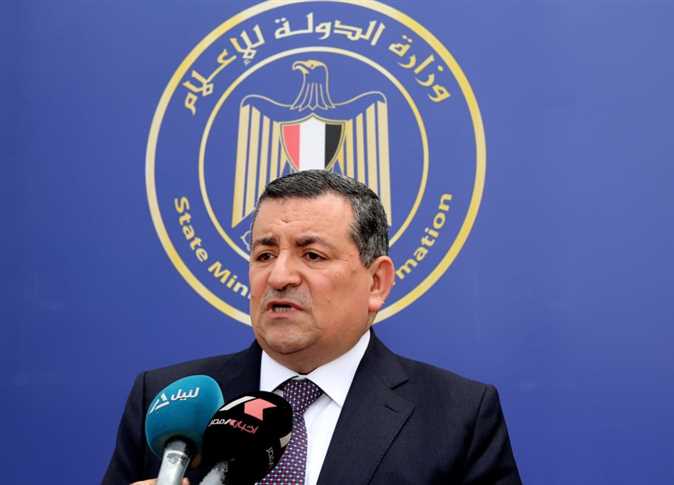The Egyptian parliament officially ended its sessions after another election, amid a festive atmosphere, with the approval of 893 laws. Still, it was forgotten that it wasted three constitutional obligations, in addition to dozens of judicial rulings. The outgoing parliament is the first according to the constitution approved in April 2014.
The council witnessed 373 plenary sessions held from January 10, 2016, during which it approved 893 laws, in addition to constitutional amendments in April 2019, and 313 international agreements. The most prominent of these agreements is the ceding of Egyptian sovereignty over Tiran and Sanafir to Saudi Arabia. Although the deputies and their president, Ali Abdel-Aal, celebrated the achievements of parliament, they overlooked their waste of important constitutional obligations, which they did not determine their fate.
Parliament has not decided the fate of three laws, which the 2014 constitution obliges him to issue before the end of the legislative season, namely: the prohibition of assigning judges to government agencies, transitional justice, and localities. According to Article 239 of the constitution, parliament was obligated to issue a law to regulate the rules for delegating judges and members of judicial bodies in a manner that guarantees the abolition of the total and partial delegation to non-judicial bodies, or committees with judicial competence. The constitution obligated the parliament to approve that law within a period not exceeding five years from the date of the constitution’s implementation, a period which had already expired nearly a year ago, without an explanation from parliament about the fate of this law.
In addition to violating the constitution, failure to issue the law means that judges will not devote themselves to the enforcement of justice on the one hand, and the state’s budget will continue to suffer because of the salaries that the judges appointed to the government and parliament receive, which are equivalent to many times their salaries from the judicial authorities and bodies. The law regulating judges’ appointment was not the first to break the constitutional obligation, as the transitional justice law preceded it, starting from September 6, 2016, when Abdel-Aal decided to adjourn the first session without issuing it.
In this way, Abdel-Aal violated the obligation of Article 241 of the constitution, which was explained by a source in the General Secretariat of the House of Representatives in the desire of the government and parliament to close any discussion of the period following the January 25 revolution, to familiarise the participants in it, and to open horizons for talking about reconciliation with the Brotherhood. Unlike the two previous laws, and despite requiring Article 242 of the constitution to be issued within five years of the constitution coming into force, Abdel-Aal did not clarify the Local Administration Law’s fate, which caused a public altercation between him and MPs in December 2019. At that time, Abdel-Aal justified the failure to pass the draft bill presented by the government, that “the deep state is the one who stands against the obstruction.”
In addition to the previous three laws, the parliament’s work harvest also did not address the reasons for ignoring the implementation of several judgments of the Cassation and Criminal Courts, with the loss of membership of some representatives. Among the most prominent of these MPs is Sahar al-Hawari, who has not issued a decision to drop her membership. However, she is currently serving a five-year prison sentence for “fraudulent bankruptcy” since April 2017.
What happened with Sahar al-Hawari was repeated with Representative Khaled Bishr, who recommended a report by the Legislative Committee, in February 2019, to drop his membership, because he borrowed nearly EGP 50 million from banks, in exchange for cheques without balance, before joining the House of Representatives. Bishr was also accused of exploiting his parliamentary immunity to evade six judicial rulings on his imprisonment, which Abdel-Aal did not find sufficient to implement the recommendation of his legislative committee to drop the membership of the deputy.
Before the rulings issued against al-Hawari and Bishr, Abdel-Aal had ignored the implementation of the two judgments issued by the Court of Cassation on June 27 and September 19, 2016, invalidating Ahmed Mortada Mansour’s membership, and Amr al-Shobaki’s eligibility for the seat of the Dokki and Agouza constituencies, according to the election result. With this waste of judicial rulings and constitutional obligations, Abdel-Aal remains the most likely to win the council’s presidency again, starting from January 10. Abdel-Aal won membership in parliament again within the National List seats in Aswan.





Recent Comments